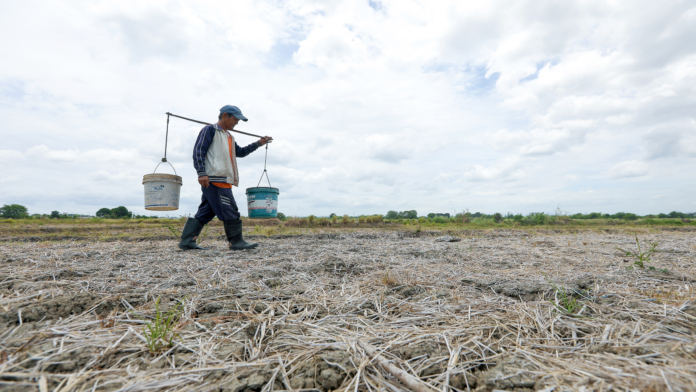Bicol Saro Party-list Rep. Brian Raymund Yamsuan on Tuesday said the Philippines would soon be “self-sufficient” in salt, as he anticipates the enactment of the proposed Philippine Salt Industry Development Act following its ratification by both houses of Congress.
Yamsuan said the measure would establish a five-year roadmap aimed at revitalizing and modernizing the dying salt industry in the country, wherein 92 percent of its salt requirements are currently imported.
The bill is listed as a priority measure by President Ferdinand R. Marcos Jr. through the Legislative Executive Development Advisory Council (LEDAC).
“Our key goals in approving this measure is to make the Philippines self-sufficient in salt, and subsequently, a net exporter of this vital commodity. By promoting public and private investments in the salt industry, as outlined under the Salt Industry Development Act, we are confident that the government under the Marcos Jr. administration would be able to fulfill these goals,” Yamsuan said.
He said the proposed law also provides the necessary support to small salt producers and cooperatives to boost their production by providing them inputs and equipment for salt development, establishing salt farm warehouses, and developing modern salt production and processing technologies.
“The timely enactment of this measure will revitalize the salt industry and create tens of thousands of jobs in the agriculture sector, especially if we are able to modernize the industry and export salt for industrial purposes,” Yamsuan said.
The bill identifies 13 provinces as priority areas for salt production, including Ilocos Norte, Ilocos Sur, La Union, Pangasinan, Zambales, Bataan, Occidental Mindoro, Oriental Mindoro, Palawan, Marinduque, Quezon Province, Misamis Oriental and Antique.
The Department of Environment and Natural Resources (DENR), National Mapping and Resource Information Authority (NAMRIA), and the Bureau of Fisheries and Aquatic Resources (BFAR) of the Department of Agriculture (DA) shall be tasked to identify and designate public lands as salt production areas in these provinces.
Salt, whether in processed or unprocessed form, is classified as an aquatic resource product and shall be exempted from all taxes under the measure.
Yamsuan noted that a Philippine Salt Industry Development Roadmap will also be formulated and established to accelerate the modernization and industrialization of the salt industry.
He also highlighted that a Philippine Salt Industry Development Council, chaired by the Department of Agriculture and with the Department of Trade and Industry as vice chairperson, shall be tasked to formulate, unify and integrate the implementation of the roadmap.
Citing figures from the Philippine Association of Salt Industry Networks (PhilASIN), Yamsuan said the country has 36,000 kilometers of shoreline, compared to Vietnam’s 3,200 kms.
“Yet Vietnam is able to produce an average of 1.1 million metric tons (MT) of salt each year from 12,000 hectares, which is a far cry from the Philippines’ 60,000 MT from only 2,100 hectares of land,” he said.
He warned that if the situation is not corrected soon, Philippines is projected to import 96 percent of its salt requirements by 2030 according to PhilASIN. (PNA)


